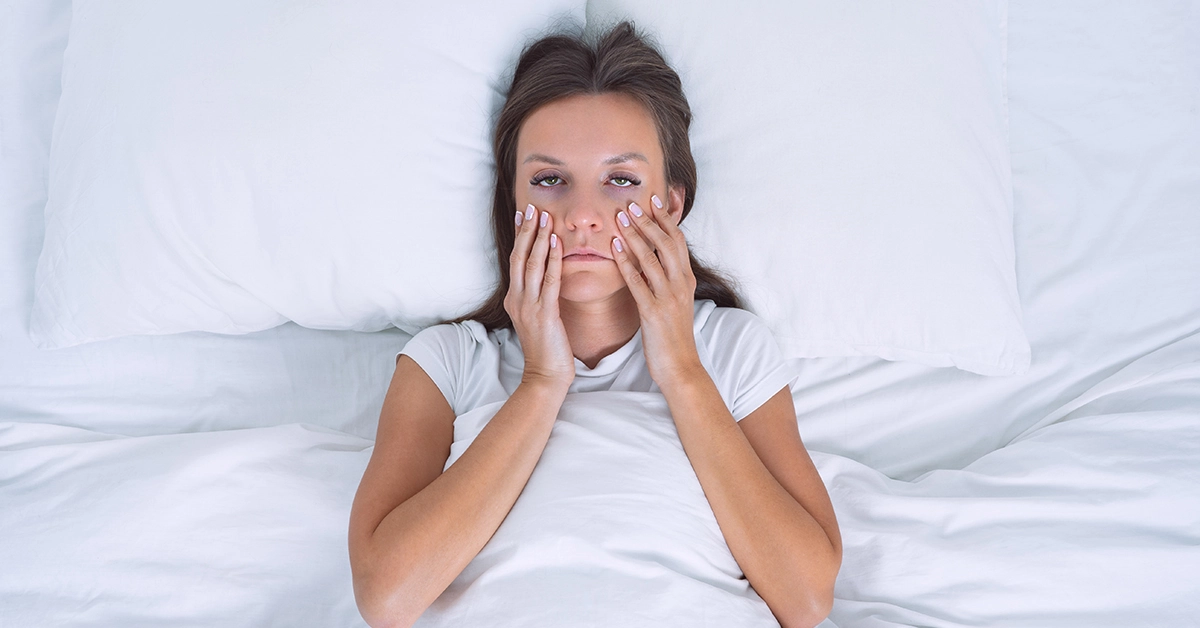Sleep Deprivation on mental health is a must-include topic when spreading awareness about ways of boosting our wellbeing. Sleep deprivation means not being able to get enough sleep for a long period of time.
If you are deprived of sleep due to any kind of reasons, this blog is for you as it talks about the major consequences on your mental well-being that can occur.
Sleep Deprivation on Mental Health: How they are related?
The inverse relationship
It is unquestionable that sleep plays a significant role in the maintenance of both physical and mental health. Your psychological well-being and mental health are impacted by lack of sleep. Then again, people struggling with mental health issues are more susceptible to insomnia and other sleep disorders. This illustrates that mental health and sleep have an inverse relationship.
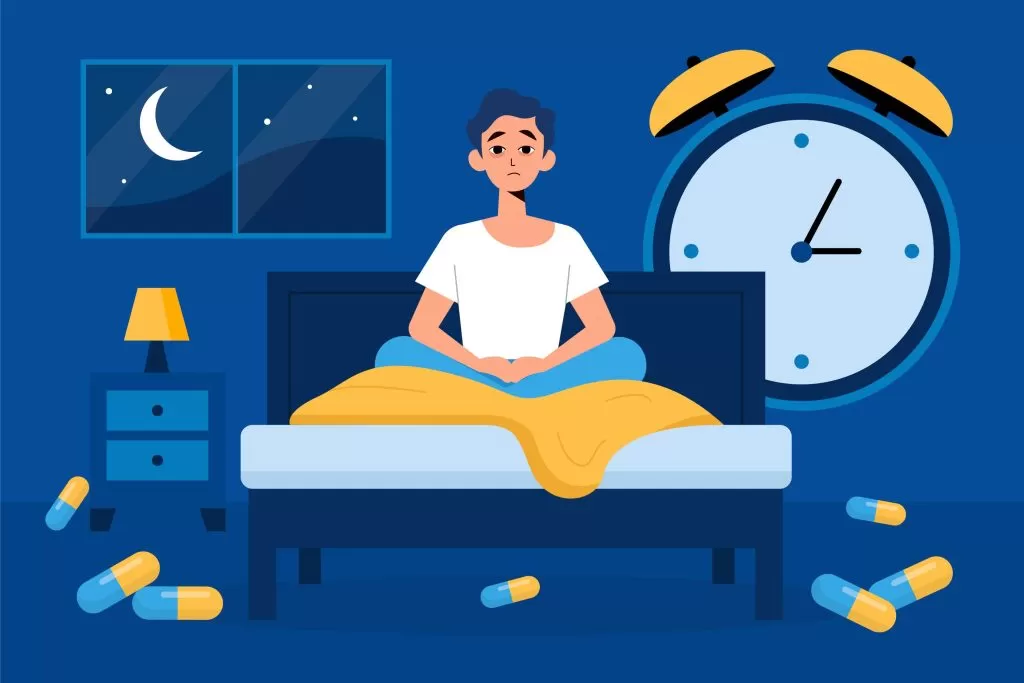
Sleep as a body charging system
Similar to how we need to charge a cell phone battery after extended usage, sleep has a significant restorative role in “recharging” the brain at the end of each day. The natural rhythm of the body can be restored each day by maintaining a regular sleep-wake cycle, which optimizes brain function and can enhance mental wellness.
The Centers for Disease Control and Prevention (CDC) estimate that one-third of Americans report sleeping less than the advised amount each night. So it is crucial to comprehend the potential effects of sleep deprivation on physical and mental health as well as general wellbeing.
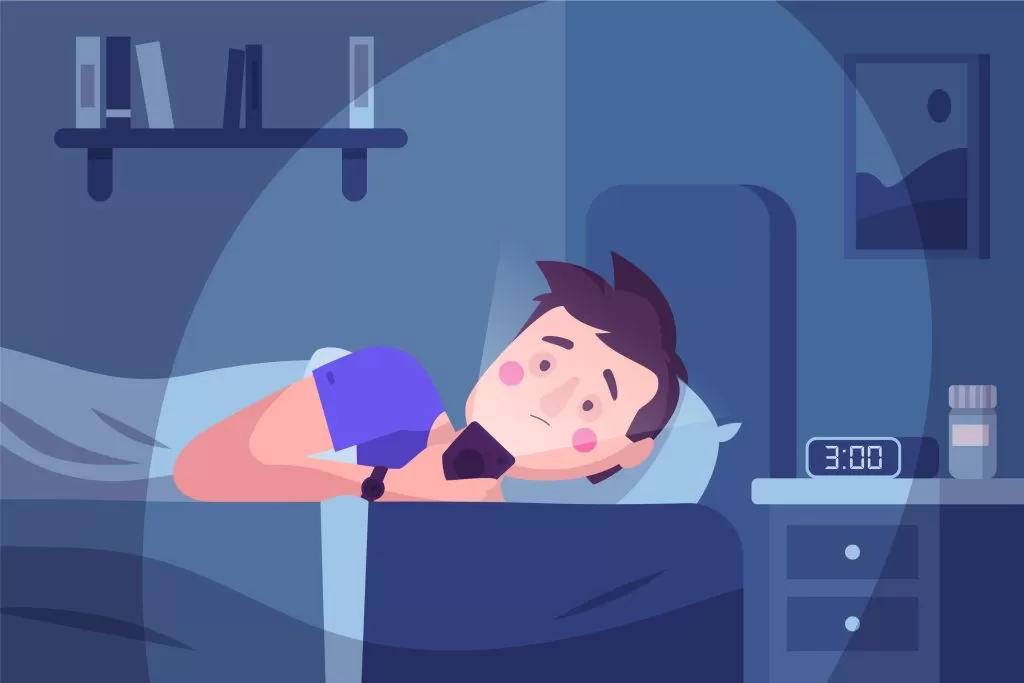
Effects of Sleep-Deprivation on Mental Health
You might remember the day you woke up late after partying till dawn the night before when you felt irritated and sleepy most of the time. Whatever the reason may be, lack of sleep or poor sleep, the result is the same the next day. In addition to having these adverse short-term effects on your mood and energy levels, it can also have adverse long-term effects on your mental well-being. Lack of sleep has psychological implications that might have a big and negative impact on how we feel every day.
Not only short-term moodiness and grogginess but consistently getting inadequate sleep carries a significant probability of causing serious depressive illness. Let’s discuss the short-term and long-term effects of Sleep-Deprivation on our mental health:
What are the short-term effects of Sleep Deprivation on Mental Health?
Lack of sleep may have serious and immediate effects on mental health. Short-term changes in mood, cognitive function, and immune system function are just a few of the short-term consequences on mental health that can result from insufficient and poor-quality sleep. Even one night of bad sleep can have obvious repercussions on one’s mental health.
The short-term effects of sleep deprivation can be severe. Promoting healthy sleep practices and preserving general mental wellbeing need an understanding of the short-term impacts of sleep loss on mental health. People may safeguard their mental health and avoid the detrimental effects of sleep deprivation on mental health by making sleep a priority. Following are the short-term effects of sleep deprivation on mental health:
1. Impaired Cognitive Function

It hinders the brain’s capacity for information processing, making it challenging to focus, pay attention, and make judgments. According to studies, even one night of sleep deprivation can affect a person’s attentiveness, response time, and accuracy when doing activities. In the job or at school, this may result in an elevated risk of accidents, mistakes, and lower productivity. Sleep deprivation has a specific impact on the prefrontal cortex, which is in charge of sophisticated thought, decision-making, and memory creation. As a result, people who lack sleep may have trouble solving problems, maintaining attention, and remembering crucial details..
2. Increased Anxiety and Stress
Lack of sleep can make people feel more stressed and anxious. Lack of sleep can cause the body’s stress response system to become overactive and release stress-related chemicals like cortisol. This could make you feel anxious, tense, or uneasy. In addition, lack of sleep can affect our capacity to control our emotions, making it challenging to control stress and react to stresses in a healthy way. This can exacerbate anxiety-related sensations by increasing concern and disturbing thoughts.
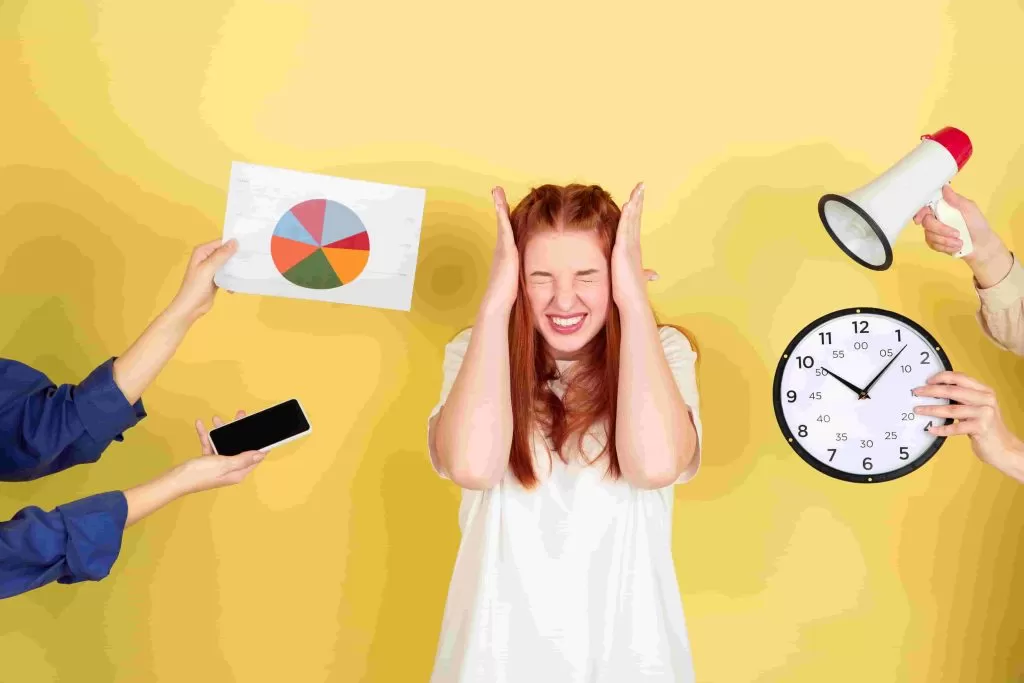
An increased risk of anxiety disorders and panic attacks can come from this interaction of elevated stress hormones and diminished emotional control. Therefore, it’s critical to prioritize getting enough sleep in order to manage stress and prevent or lessen anxiety symptoms. Getting enough sleep can assist to control stress hormones and enhance emotional control, which can improve mental health and general wellbeing.
3. Mood Swings and Irritability
Lack of sleep can lead to mood changes and irritation. Lack of sleep can cause the chemicals and neurotransmitters in the brain that control our mood to go out of balance, making us feel angrier, more frustrated, and more irritable. As a result, people may find it difficult to control their emotions and respond to pressures negatively or inappropriately, which can have a detrimental effect on both personal and professional relationships. People who are sleep deprived may also feel less motivated and have less energy, which makes it challenging to participate in fun activities or complete everyday responsibilities. Additionally, this may exacerbate a bad mood and lower general wellbeing.
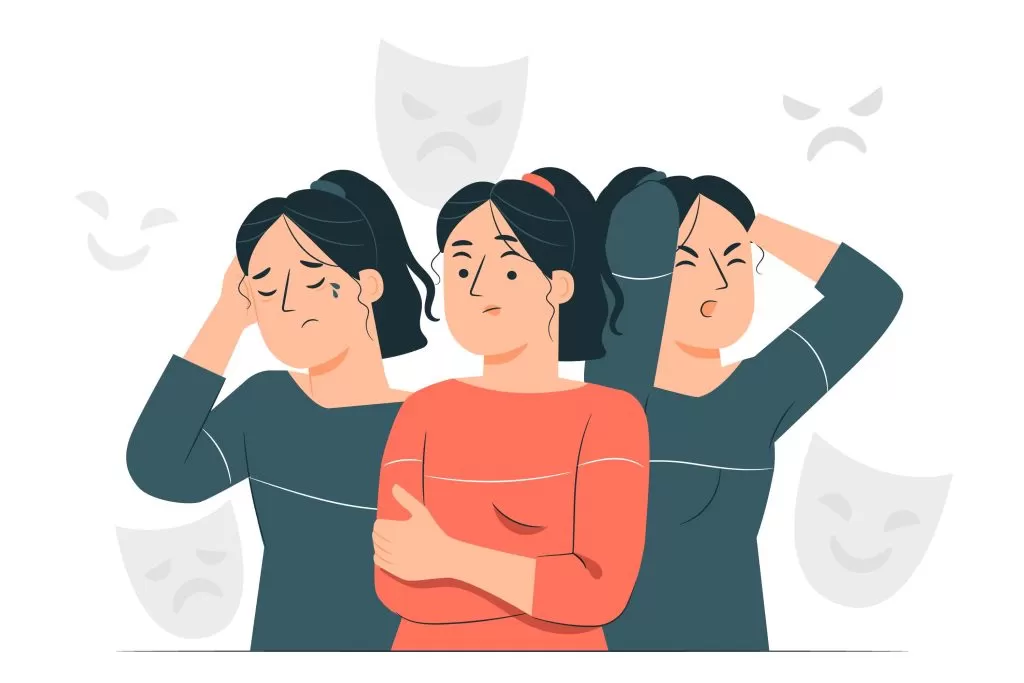
4. Decreased motivation and Energy
Insufficient sleep can lead to a decline in energy and drive. Lack of sleep can affect how well the brain produces and controls the neurotransmitters serotonin and dopamine, which are linked to motivation and energy. This may lead to a decline in motivation, making it challenging to muster the energy and desire to participate in activities or finish chores.
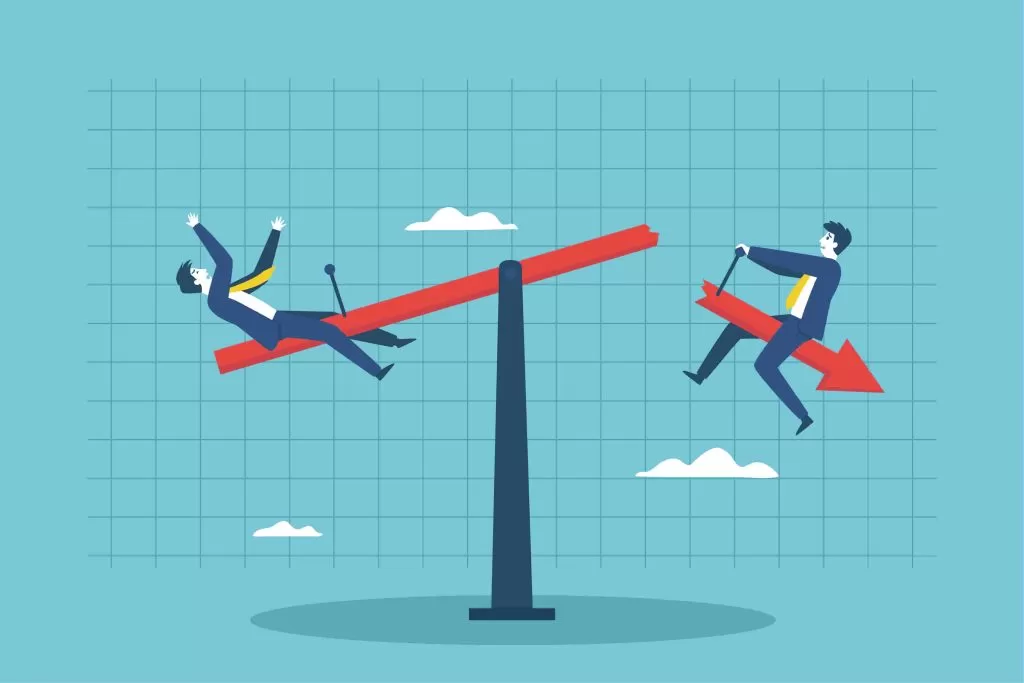
Additionally, lack of sleep can lower physical energy levels, resulting in sensations of lethargy and exhaustion. It may be challenging to function well at work or take part in physical activities as a result of this, which may also result in lower productivity. Lowered overall well-being and a negative influence on everyday living might result from the interaction of lower motivation and energy levels.
5. Decreased ability to concentrate and retain information
Reduced concentration and memory are two effects of sleep deprivation on mental health. Lack of sleep can affect memory consolidation and learning, which are processes that depend on sleep. According to studies, those who don’t get enough sleep have trouble focusing, paying attention, and remembering things.
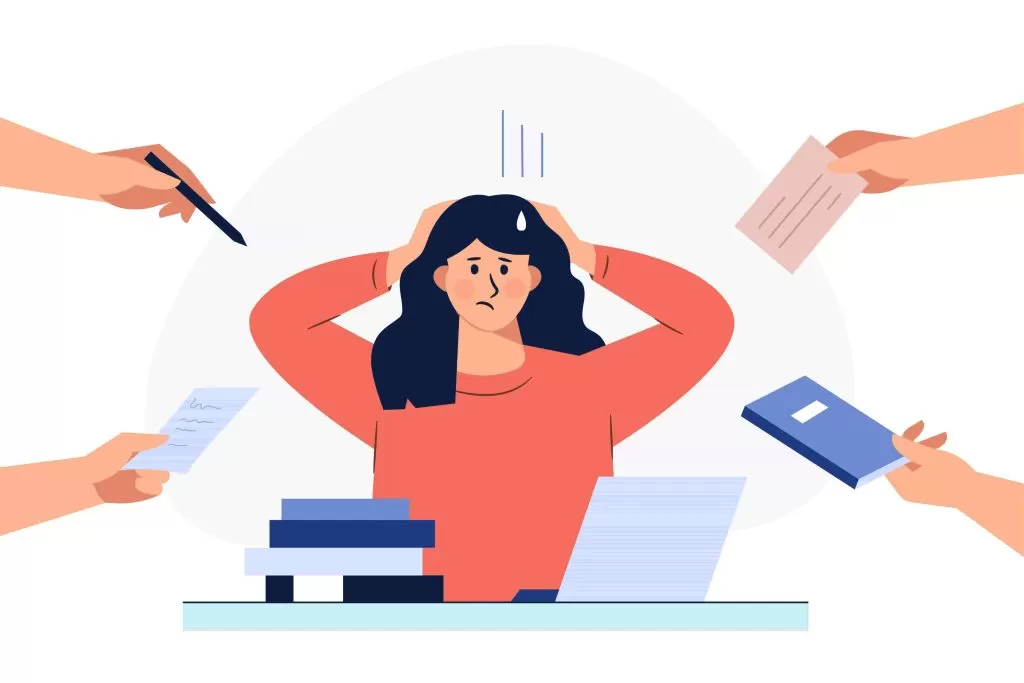
As it is harder to acquire new material and remember it over time, this might result in decreasing performance at school or at the office. As the brain struggles to digest information and make wise decisions, sleep deprivation can also affect one’s capacity to make decisions. This may lead to lower productivity and more mistakes, which might have detrimental effects on both your personal and professional life.
What are the long-term effects of Sleep-Deprivation on Mental Health?
Chronic sleep deprivation can have detrimental, long-lasting impacts on one’s mental health. Long-term sleep deprivation has been linked to the emergence of major mental health disorders such bipolar disorder, anxiety, and depression. The long-term effects of sleep deprivation on mental health can have severe repercussions, affecting a person’s capacity for everyday living and perhaps resulting in a decline in quality of life.
Promoting healthy sleep patterns and avoiding the onset of major mental health issues need an understanding of the long-term impact of sleep deprivation on mental health. People may safeguard their mental health and lower their risk of the damaging long-term consequences of sleep deprivation on mental health by prioritizing sleep and practicing excellent sleep hygiene.
Following are some long-term effects of sleep deprivation on mental health:
1. Increased risk of depression and anxiety disorders
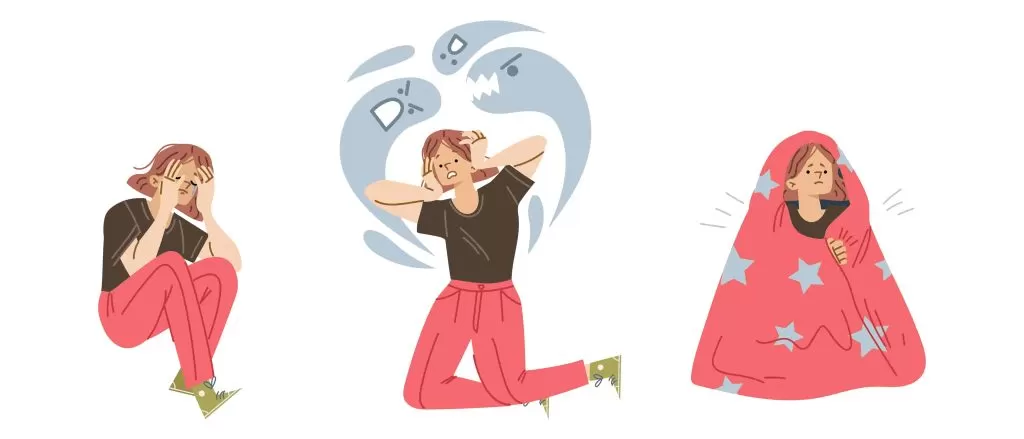
Long-term sleep deprivation raises the chance of acquiring anxiety and depressive disorders. These are significant conditions that can leave a person feeling depressed, despondent, anxious, uneasy, or afraid. Sleep deprivation impairs the brain’s capacity for proper operation, which has a detrimental impact on mood, thinking, and behavior.
This can lead to persistent and disruptive feelings of despair, pessimism, and concern. Prioritizing appropriate sleep habits, such as obtaining enough sleep each night and maintaining a regular sleep pattern, is crucial to lowering the risk of melancholy and anxiety.
2. Impairment of immune system
By altering the generation and function of cytokines, which are proteins important in controlling the immunological response, sleep deprivation lowers the body’s immune system. Lack of sleep can affect the production and performance of cytokines, which aid in the body’s defense against infections and inflammation. The activity of natural killer cells, which are crucial for warding off viruses and other infections, can also be decreased by sleep deprivation.
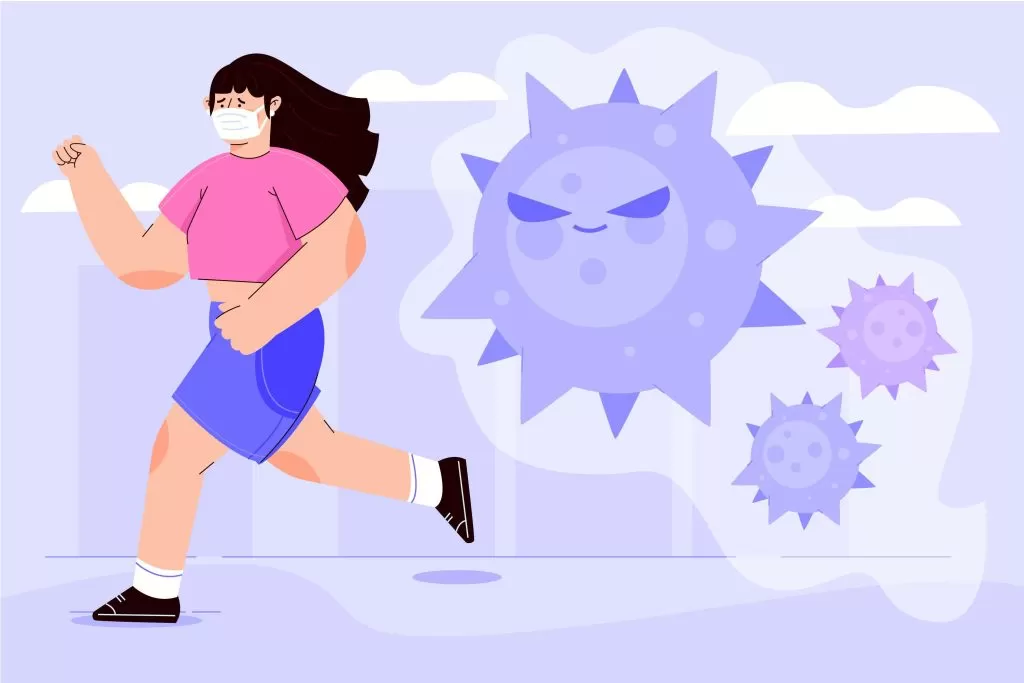
Additionally, a lack of sleep can raise cortisol levels, a hormone that weakens the immune system and causes inflammation. The immune system may become compromised as a result of these physiological changes, making it more difficult for the body to fend against infections and diseases.
3. Memory problems and decline in learning abilities
Lack of sleep interferes with the brain’s capacity to consolidate memories, which affects memory and learning. The brain needs sleep in order to absorb information and strengthen the neural connections that underpin memory development.
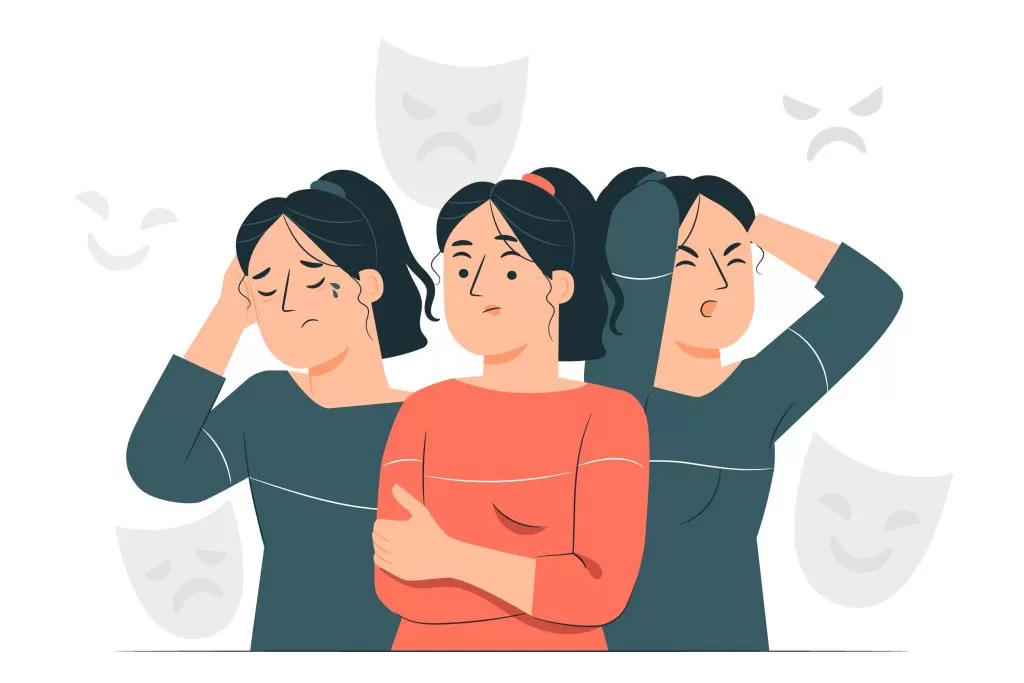
Lack of sleep obstructs this procedure, making it challenging for the brain to convert short-term memories into long-term ones. As a result, learning capacities deteriorate and memory recall problems arise. It’s crucial to emphasize healthy sleep habits and obtain enough sleep each night in order to preserve decent memory and cognitive capacities.
4. Increased likelihood of developing bipolar disorder
Lack of sleep can raise the risk of bipolar illness by interfering with the brain’s ability to regulate mood. Swings in mood, vigor, and activity levels are hallmarks of bipolar disease, and sleep disruptions can set off mood episodes. A decreased ability of the brain to control emotions and mood can raise the likelihood of developing bipolar illness.
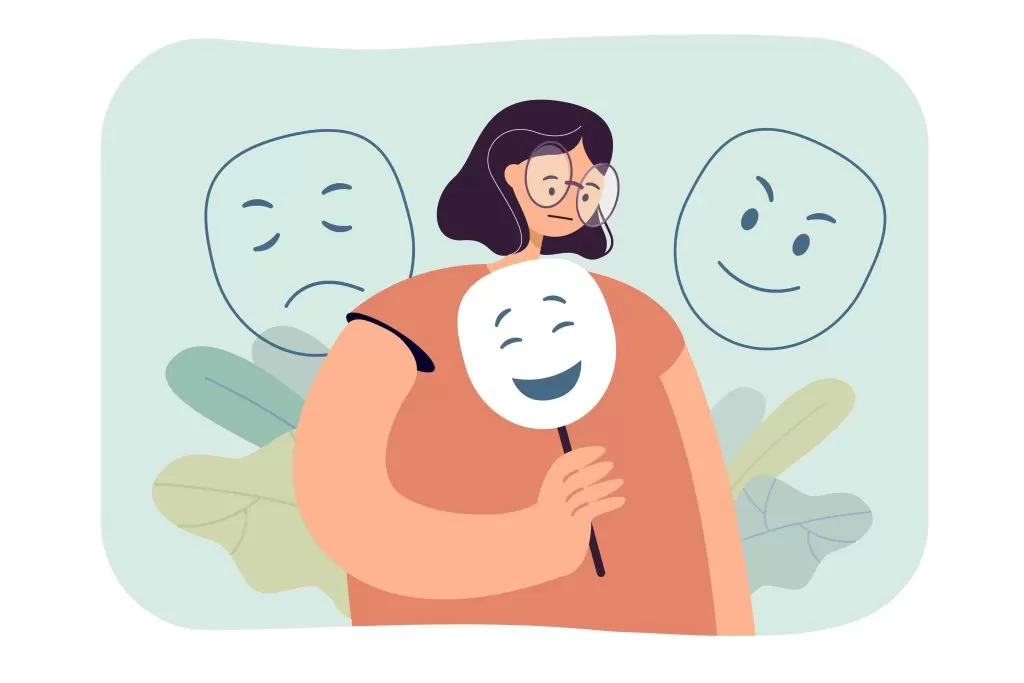
This is why it’s crucial for those who have bipolar illness or are at risk for developing it to emphasize healthy sleep habits and uphold consistent sleep schedules. Getting enough sleep can help stabilize mood and lower the likelihood of mood fluctuations.
5. Increased risk of substance abuse and addiction
By affecting the brain’s reward system and emotion control, sleep deprivation can raise the risk of substance usage and addiction. Lack of sleep impairs our capacity to control our emotions, which increases stress, worry, and anger. Some people may use alcohol or drugs as a coping mechanism because they can temporarily dull unpleasant emotions by releasing pleasure chemicals in the brain.

However, continued substance use can result in addiction because the brain gets reliant on these drugs to control mood and emotions. This sets up a vicious loop where drug use disrupts sleep cycles, which then worsens the consequences of sleep deprivation on emotional regulation and raises the danger of addiction.
How do you correct sleeping habits for better mental health?

- Establish a consistent bedtime and wake-up time
- Exercise regularly. However, if you exercise within two hours of going to bed, it could be difficult to fall asleep.
- Develop a healthy eating habit. It may be tough to fall asleep after a meal right before bed.
- Just sleep in your bedroom. Avoid eating or watching TV in bed. Ensure your bedroom is cold, quiet, and dark.
- Avoid nicotine, caffeine, and alcohol, especially just before bedtime. These are stimulants that prevent you from sleeping.
If you like what you read and for more informational content like this, visit our blog section.

